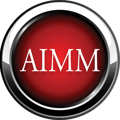Are you looking for the best Jackson, California Music School?
Are you looking for the best Mission Viejo, California Music School?
Are you looking for the best Calistoga, California Music School?
Are you looking for the best Buellton, California Music School?
Are you looking for the best Crestline, California Music School?
Are you looking for the best Montecito, California Music School?
Are you looking for the best San Bernardino, California Music School?
Are you looking for the best Pomona, California Music School?
Are you looking for the best Cudahy, California Music School?
Are you looking for the best Loma Linda, California Music School?
Frequently Asked Questions
If your application is accepted, you'll be required to complete an entrance exam and submit a video submission.
AIMM currently administers the following Title IV Federal Aid Programs:
- Federal Pell Grant
- Federal Direct Loans
- Federal Direct PLUS Loans
- Once a student has been accepted for admission to AIMM, and has applied for Federal Financial Aid, their Financial Aid File will be processed
All Federal Aid Applications and required supporting financial documents must be submitted at least 30 days prior to the student’s first day of class.
The program can be completed in 12 months (4 quarters) of full-time enrollment, or 24 months (8 quarters) of part-time enrollment.
Financial aid is available for those that qualify.
AIMM is unique in that we offer a singular online music program that combines organic instrumentation with music production techniques.
For our online music certificate, you will master an instrument of choice (Guitar or Bass) and learn the best insider techniques for tracking, mixing, and mastering like the pros. As an AVID Pro Tools Training Partner, AIMM utilizes the best software and strategies to ascend your skillset as an optimal and well-rounded musician in today's landscape.
No matter your learning style, what you learn in the classroom is directly applicable to the music industry which is what we consider high quality music education.
Music certificates offer graduates the widest range of career options. When you graduate from AIMM, career opportunities include:
- Director of Audio Events
- Director of Visual Events
- Music Producer
- Sound Engineer
- Audio and Lighting Technician
- Audio Engineer
- Session Guitarist
- Music Center Owner and Entrepreneur
- Audio Visual Specialist
- Professional Guitarist
- Recital Guitarist
- Professional Bassist
- Music Ensembles
- Session Bassist
- Music Performers
- Studio Musician
- Classical Music Instructor
- Professional music instructor
- Professional musician
- Accompanist
- Musical Theatre Performer
- Advanced Student Instructor
- Creative Community Musical Leader
- Artist Director
- Private Music Lessons
- Music Instructor
- Music Teachers
- Music Director
- Private Lesson Instructor
- Band director
- DJ
Yes, AIMM’s studios and computer labs are outfitted with all the hardware and software required to complete students’ coursework.
Our school of music also offers the purchase of an additional “Tech Kit." The "Tech Kit" is not included in the cost of tuition, it is an optional expense if a student would like to outfit their home workspace with our suggested hardware and software.also offers the purchase of an additional “Tech Kit." The "Tech Kit" is not included in the cost of tuition, it is an optional expense if a student would like to outfit their home workspace with our suggested hardware and software.
The purchasing of the Tech Kit is handled through a third-party website called Vintage King.
Instrument-Specific Technical Courses
| Course Number | Course Title | Credits | |
| BAS/DRM/GTR/KEY/VOC130 | Reading I This course is designed to introduce and develop the skills required for sight reading of chords and single note melodies on the guitar. Beginning in the open position, students will read etudes, duets, and chord charts for each class session. By the end of the quarter, the student should be able to read up to the second position in a variety of styles and rhythmic patterns. |
1 | |
| BAS/DRM/GTR/KEY/VOC230 | Reading II This course is designed to develop the student’s ability to read in various positions on the neck. Beginning with the second and third positions, students will read etudes, duets, and chord charts for each class session. By the end of the quarter, students will be required to read single note melodies up to the seventh position and a variety of styles of chord charts. Prerequisite: GTR130 Reading I. |
1 | |
| BAS/DRM/GTR/KEY/VOC120 | Scales I / Technique I Application of scales and arpeggios, taught within the context of the corresponding Performance class selections, with a focus on playing the changes with major and minor dominant blues. Topics covered: major scales with corresponding diatonic chords and arpeggios, major pentatonic, major pentatonic with flat 3, blues scale, natural minor, mixolydian mode.. |
1 | |
| BAS/DRM/GTR/KEY/VOC220 | Scales II / Technique II Scales II explores the melodic minor scale in depth including: modes, arpeggios, and sequences. The class also explores uses of symmetric scales. Students are expected to play regularly, demonstrating not only knowledge of the scales, but also knowledge of how to use those scales to create music. Prerequisite: Scales I |
1 | |
| Number of Instrument-Specific Credits Required | 4 | ||
Interdisciplinary Technical Courses
| Course Number | Course Title | Credits | |
| INT100 | Performance I This course is an interdisciplinary live performance class based on standard introductory level repertoire for R&B, Blues, Rock and Pop styles. Students perform on stage weekly in a live interactive ensemble format with voice and rhythm section instrumentation that emulates professional gigging scenarios. The emphasis is on execution of melody, rhythm, chords, form, and improvisation. Materials such as sheet music, charts, play along tracks, lyrics, video tutorials are provided via Canvas Learning Management System.. |
4 | |
| INT200 | Performance II This course is an interdisciplinary live performance class based on standard intermediate level repertoire for R&B, Blues, Rock and Pop styles. Students perform on stage weekly in a live interactive ensemble format with voice and rhythm section instrumentation that emulates professional gigging scenarios. The emphasis is on execution of melody, rhythm, chords, form, and improvisation. Materials such as sheet music, charts, play along tracks, lyrics, video tutorials are provided via Canvas Learning Management System.. Prerequisite: INT100 Performance I. |
4 | |
| INT145 | Music Theory Essentials I This class covers the basic elements of music theory, ear training and notation. Diatonic harmony, major and minor key signatures, triads and 7th chords, scale harmonization, meters, basic rhythmic notation, and chord symbol conventions. Students will practice recognizing fundamental musical elements by ear. Basic keyboard skills will be covered including chords, scales and reading. |
3 | |
| INT245 | Music Theory Essentials II This class focuses on scales, modes and linear structures needed for improvisation and melody. Ear training and dictation of melody and diatonic chord progressions are covered. Advanced notation concepts including form, articulation and syncopated rhythm are included. Harmonic concepts are practiced and reinforced using keyboard. Prerequisite: INT145 Music Theory Essentials I |
3 | |
| INT495 | Music Business Presenting concepts and practices that cover several areas of the constantly changing music industry. Students will learn about such things as booking, agency contacts, performing rights organizations, copyright and trademark, record label anatomy, artist management agreements, tax information, resume and self-promotion. |
1 | |
| Number of Interdisciplinary Credits Required | 15 | ||
Recording and Engineering Technical Courses
| Course Number | Course Title | Credits | |
| RCD100 | Pro Tools 101 This course introduces basic principles a student needs to understand how to complete a Pro Tools project, from initial setup to final delivery, and to take the Avid Pro Tools 101 User Certification exam. Topics include purposes and uses of edit tools, modes, various track and signal clip functions for recording, editing, and importing audio, MIDI, and video used for music and media production. Included with the course textbook are media files for Pro Tools 101 exercises and hands-on projects. Students in good standing will have the opportunity to take the Avid Pro Tools 110 User Certification exam upon course completion.. |
2 | |
| RCD130 | MIDI: Synthesis & Sequencing This course is an introduction to the MIDI language, using Ableton Live and Native Instrument’s Komplete Bundle as the vessel of instruction. This course demonstrates core concepts such as the basic MIDI environment, sequencing, sampled-based and synthesis instruments, automation, and final steps for MIDI-based production including mixing and effects processing. : |
4 | |
| RCD140 | Introduction to Audio Production I This course gives the student an introduction to, and a strong foundation in, audio production techniques, including an introduction to analog recording history, physical properties of sound, basic microphone types, recording environments, mono & stereo microphone techniques as well as basic analog signal flow & analog signal processing including equalization and dynamic processing techniques. |
3 | |
| RCD200 | Pro Tools 110 This course builds on the introductory Pro Tools 101 course, evolving basic Pro Tools principles while providing the student with the essential processes needed to complete a Pro Tools project, from initial set up to final mixdown, and to take the Avid Pro Tools 110 User Certification exam. The course teaches intermediate Pro Tools techniques, covering key concepts and skills needed to operate a Pro Tools system. Topics include Hardware I/O setup and routing, Elastic Audio, internal Bus path usages for send/returns, automation, and more. Included with the course textbook are media files for Pro Tools 110 exercises and hands-on projects. Students in good standing will have the opportunity to take the Avid Pro Tools 110 User Certification exam upon course completion. Prerequisite: RCD100 Pro Tools 101 |
2 | |
| RCD240 | Introduction to Audio Production II This course gives the student a more advanced introduction and foundation to audio production techniques including principles of analog & digital audio production and recording and data storage and playback media for digital audio formats. The student will gain an advanced understanding of large format analog console signal flow, time-based processors and an introduction to plug-in processing. Prerequisite: RCD140 Introduction to Audio Production I |
3 | |
| Number of Recording Technical Credits Required | 14 | ||
General Education Courses
| Course Number | Course Title | Credits | |
| SCI120 | Physics of Sound This course introduces students to the physical nature of music and sound. Waves, sound propagation, harmonic content, the human hearing mechanism and musical instrument tone production are discussed. Psychoacoustics and perception of sound are included |
3 | |
| Minimum Number of General Education Credits Required | 3 | ||
| Certificate in Music and Technology (Online) - Total Credits | 36 | ||
To better serve our students, the curriculum is subject to change.
Back to Top
You have the passion. You have the talent. So, what's holding you back?










